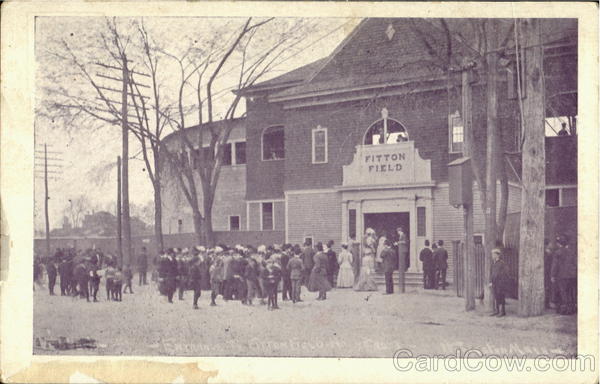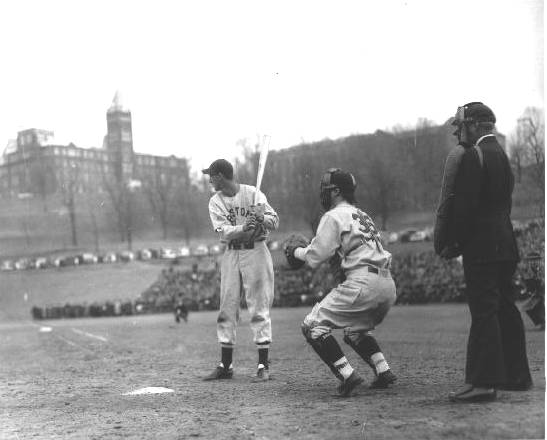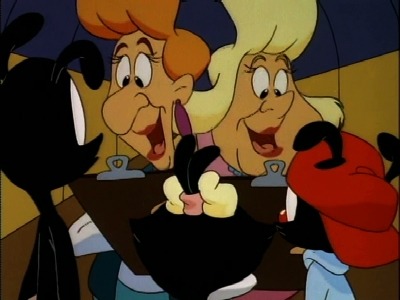Re: Malden Minor League Baseball Stadium
http://malden.advocatenews.net/wp-content/uploads/2011/12/Malden-Park-Rendering-front-view.jpg
Malden seriously considering minor league baseball stadium proposal
December 9, 2011
By Malden News
Artist rendering of the proposed Malden Park facade. (photo courtesy of Boston Baseball Field of Dreams, LLC)
By Alex Bloom
Minor league baseball coming to Malden is no longer just a vision.
Malden will seriously consider a $30-million stadium proposal for the nine-acre National Grid site at 100 Commercial Street.
Last week, stadium backers submitted the only plan for the site to the Malden Redevelopment Authority request for potential uses of the land.
If everything goes to plan — including getting neighborhood support for the plan, negotiating a lease agreement between National Grid and the stadium owners, and getting consensus on the project scope — Malden residents could attend opening day at their own 6,000-seat stadium in April 2014.
“I absolutely, positively believe these guys could build this thing on time,” said Stephen Wishoski, executive director of the Malden Redevelopment Authority.
The first steps are already under way to vet the project, submitted by the Boston Baseball Field of Dreams, LLC, as the Malden Redevelopment Authority has set up a committee to look into the proposal. The group consists of Mayor-elect Gary Christenson, Ward 4 City Councillor James Nestor, developer John Preotle, financial analyst Barry Abramson, Wishoski, Malden Redevelopment Authority Assistant Executive Director Deborah Burke, Malden’s principal city planner Michelle Romero, and accountant William Rucci.
“The response they gave us was — in my opinion — excellent,” Wishoski said of the Boston Baseball Field of Dreams proposal.
Alexander Bok, the group’s founder and president, said the group has been looking for greater Boston sites for the stadium for years. The group pushed to land the stadium at sites near Boston College High School and Bunker Hill Community College, both of which fell through.
Malden represents an ideal spot for a stadium, Bok said, because of its location — in short proximity to subway and commuter rail stops as well as Route 1 and Interstate 93. The city also has two parking garages nearby. He expects 40 percent of all attendees will walk or take public transportation to games.
Bok sees minor league baseball as affordable family entertainment, where a family of four could buy tickets, food, and souvenirs for $100.
“It will be something that the whole family will have a great time at,” Bok said.
Bok also believes baseball presents one of the last opportunities in society for families to have quality conversations with their children. The game has many natural pauses and a lot of time to talk.
“If you want to, you can have a very great conversation with your kids,” Bok said.
A Malden team would join the Atlantic League of Professional Baseball, which has eight independent teams and has had alumni that include Hall-of-Famer Rickey Henderson and former Red Sox closer Keith Foulke.
Malden would host 68 home games between late April and mid-September, bringing thousands of people each night to the stadium, surrounding restaurants and stores.
Bok sees the stadium also having a year-round restaurant and conference facilities. Wishoski said that building a stadium might also help the city attract a hotel to downtown.
“What it represents potentially to the city of Malden and downtown is that niche — the thing that nobody else around here has,” Wishoski said.
According to their website, greaterbostonballpark.com, the stadium will be modeled after Hammons Field in Springfield, Mo. Bok is joined by Pete Guiney, the plan’s senior vice president, and a board of advisors that includes John Gillespie, who helped finance other large stadiums including Denver’s Pepsi Center and Baltimore’s Camden Yards.
The group plans to finance the $30-million stadium through corporate sponsors.
Nestor, who represents the downtown area on the City Council, said he hopes the stadium could also attract high school and college baseball tournaments with its turf field. He said the stadium could be “a magnet for income into the city.”
“There’s a lot of disposable income that can go into the restaurants and the stores in the area,” Nestor said.
Bok said he understands that the Boston Red Sox and Fenway Park are the toast of the town for Boston baseball fans, but said that a city with a cathedral can have a great parish church.
“It’s a way to build the next generation of baseball fans,” Bok said.




